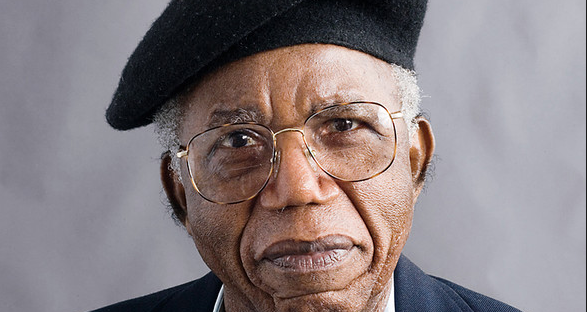Remourning Chinua Achebe African Literary Titan…

‘When an old man dies a library burns to the ground’! Chinua Achebe, the Nigerian writer who was one of Africa’s most widely read novelists and one of the continent’s towering men of letters, Achebe died two years ago, in 2013 he was 82.
Besides novels, Mr. Achebe’s works included powerful essays and poignant short stories and poems rooted in the countryside and cities of his native Nigeria, before and after independence from British colonial rule. His most memorable fictional characters were buffeted and bewildered by the conflicting pulls of traditional African culture and invasive Western values.
For inspiration, Mr. Achebe drew on his own family history as part of the Ibo nation of southeastern Nigeria, a people victimized by the racism of British colonial administrators and then by the brutality of military dictators from other Nigerian ethnic groups.
Mr. Achebe burst onto the world literary scene with the publication in 1958 of his first novel, “Things Fall Apart,” which has sold more than 10 million copies and been translated into 45 different languages.
Set in the Ibo countryside in the late 19th century, the novel tells the story of Okonkwo, who rises from poverty to become an affluent farmer and village leader. But with the advent of British colonial rule and cultural values, Okonkwo’s life is thrown into turmoil. In the end, unable to adapt to the new status quo, he explodes in frustration, killing an African in the employ of the British and then committing suicide.

The novel, which is also compelling for its descriptions of traditional Ibo society and rituals, went on to become a classic of world literature and was often listed as required reading in university courses in Europe and the United States.
But when it was first published,”Things Fall Apart”did not receive unanimous acclaim. Some British critics thought it idealized pre-colonial African culture at the expense of the former empire.
“An offended and highly critical English reviewer in a London Sunday paper titled her piece cleverly, I must admit, ‘Hurray to Mere Anarchy!’ ” Mr. Achebe wrote in “Home and Exile,” a collection of autobiographical essays that appeared in 2000. A few other novels by Mr. Achebe early in his career were occasionally criticized by reviewers as being stronger on ideology than on narrative interest.
But over the years, Mr. Achebe’s stature grew until he was considered a literary and political beacon.
“In all Achebe’s writing there is an intense moral energy,” observed Kwame Anthony Appiah, professor of Afro-American studies and philosophy at Princeton, in a commentary published in 2000. “He speaks about the task of the writer in language that captures the sense of threat and loss that must have faced many Africans as empire invaded and disrupted their lives.”
In a 1998 book review in The New York Times, the South African novelist Nadine Gordimer, a Nobel laureate, hailed Mr. Achebe as “a novelist who makes you laugh and then catch your breath in horror — a writer who has no illusions but is not disillusioned.”
Mr. Achebe’s political thinking evolved from blaming colonial rule for Africa’s woes to frank criticism of African rulers and the African citizens who tolerated their corruption and violence.
Forced abroad by Nigeria’s civil war in the 1960s and then by military dictatorship in the 1980s and ‘90s, Mr. Achebe had lived for many years in the United States, where he was a university professor, most recently at Brown. He had previously taught for 19 years at Bard College in the Hudson River valley. .…Read More here



